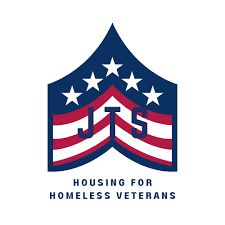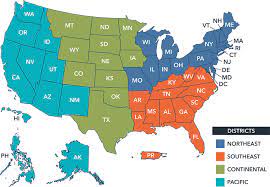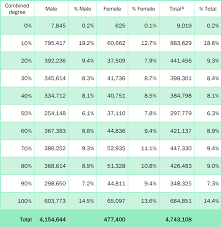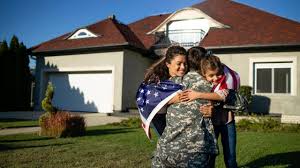Organizations That Help Homeless Veterans
Homelessness among veterans is a pressing issue that requires attention and support from the community. Fortunately, there are several organizations dedicated to providing assistance to homeless veterans and helping them transition to stable housing and improved quality of life.
The following are some notable organizations that offer support to homeless veterans:
- Veterans Matter: This organization works to prevent homelessness among veterans by providing deposits and first month’s rent for those in need of housing.
- The National Coalition for Homeless Veterans (NCHV): NCHV is a resource and advocacy organization that works to end homelessness among veterans through collaboration with local service providers and government agencies.
- Soldier On: Soldier On provides transitional housing, permanent supportive housing, and other services to homeless veterans, with a focus on helping them achieve self-sufficiency.
- Veterans Village: This organization offers a range of services including housing assistance, counseling, job training, and healthcare to homeless veterans in need of support.
- Fisher House Foundation: Fisher House Foundation provides temporary lodging for families of hospitalized veterans and military personnel, offering a supportive environment during times of crisis.
These organizations play a crucial role in addressing the complex needs of homeless veterans and helping them rebuild their lives. By supporting these organizations through donations or volunteering, individuals can make a meaningful impact in the lives of those who have served our country.
Empowering Homeless Veterans: Housing, Support, and Opportunities for a Brighter Future
- Provide housing assistance to homeless veterans in need
- Offer counseling and support services to address mental health issues
- Assist with job training and employment opportunities for veterans
- Collaborate with government agencies to access benefits and resources
- Help veterans navigate the process of applying for healthcare services
- Create a supportive community for homeless veterans to rebuild their lives
Challenges Faced by Organizations in Supporting Homeless Veterans: Navigating Funding, Bureaucracy, and Accessibility Issues
- Limited funding may restrict the scope of services provided to homeless veterans.
- Bureaucratic processes within organizations can delay assistance to veterans in need.
- Some organizations may lack sufficient resources to address the diverse needs of homeless veterans.
- Geographical limitations may hinder access to services for homeless veterans in certain areas.
- Staff turnover within organizations can disrupt continuity of care and support for homeless veterans.
- Organizations may face challenges in effectively coordinating with other service providers, leading to gaps in care.
- The stigma associated with homelessness can deter some homeless veterans from seeking help from these organizations.
Provide housing assistance to homeless veterans in need
One significant benefit of organizations that help homeless veterans is their provision of housing assistance to those in need. By offering transitional housing, permanent supportive housing, and other related services, these organizations address the immediate and critical need for shelter among homeless veterans. This support not only provides a safe and stable living environment but also serves as a crucial stepping stone towards self-sufficiency and overall well-being for veterans who have fallen on hard times. Through their housing assistance programs, these organizations offer a lifeline to homeless veterans, helping them rebuild their lives and regain independence.
Offer counseling and support services to address mental health issues
One significant benefit of organizations that help homeless veterans is their provision of counseling and support services to address mental health issues. Many veterans struggle with mental health conditions such as PTSD, depression, and anxiety as a result of their service experiences. By offering specialized counseling and support tailored to the unique needs of veterans, these organizations play a crucial role in helping individuals cope with their mental health challenges and work towards recovery. Providing access to professional mental health services can make a profound difference in the lives of homeless veterans, empowering them to heal emotionally and regain stability in their lives.
Assist with job training and employment opportunities for veterans
One significant benefit of organizations that help homeless veterans is their focus on job training and employment opportunities. By providing access to vocational training programs, resume building workshops, and job placement services, these organizations empower veterans to gain valuable skills and secure stable employment. This support not only helps veterans achieve financial independence but also boosts their confidence and sense of purpose as they reintegrate into civilian life. Through tailored job training initiatives and employment assistance, these organizations play a vital role in helping homeless veterans build a sustainable future for themselves.
Collaborate with government agencies to access benefits and resources
By collaborating with government agencies to access benefits and resources, organizations that help homeless veterans can provide crucial support in navigating the complex system of available services. This partnership allows for a more streamlined process in connecting veterans with the assistance they are entitled to, such as housing vouchers, healthcare services, job training programs, and mental health support. By leveraging these government resources through collaboration, organizations can ensure that homeless veterans receive comprehensive care and assistance tailored to their specific needs, ultimately improving their chances of successfully transitioning out of homelessness and rebuilding their lives.
Help veterans navigate the process of applying for healthcare services
One significant benefit of organizations that help homeless veterans is their ability to assist veterans in navigating the often complex process of applying for healthcare services. These organizations provide valuable guidance and support to veterans, ensuring they have access to the healthcare services they need. By offering assistance with paperwork, explaining eligibility criteria, and connecting veterans with appropriate resources, these organizations play a vital role in helping homeless veterans receive the healthcare services they deserve.
Create a supportive community for homeless veterans to rebuild their lives
One significant benefit of organizations that help homeless veterans is their ability to create a supportive community where veterans can rebuild their lives. By offering housing assistance, counseling, job training, and other essential services, these organizations provide a safe and nurturing environment for homeless veterans to access the resources they need to transition to stable housing and achieve self-sufficiency. Through this supportive community, veterans can receive the encouragement, guidance, and camaraderie necessary to overcome challenges and rebuild their lives with dignity and respect.
Limited funding may restrict the scope of services provided to homeless veterans.
Limited funding poses a significant challenge for organizations that help homeless veterans, as it can restrict the scope of services they are able to provide. With limited financial resources, these organizations may struggle to offer comprehensive support such as housing assistance, job training programs, mental health services, and healthcare resources that homeless veterans desperately need. The lack of funding can hinder their ability to reach a larger number of veterans in need and may result in longer wait times for services or limited availability of crucial programs. Despite their dedication and commitment to assisting homeless veterans, the constraint of limited funding remains a constant obstacle for these organizations in fulfilling their mission effectively.
Bureaucratic processes within organizations can delay assistance to veterans in need.
One significant drawback of organizations that help homeless veterans is the presence of bureaucratic processes that can often result in delays in providing assistance to veterans in need. The red tape and administrative hurdles within these organizations can slow down the delivery of critical services, such as housing assistance, counseling, and healthcare, to homeless veterans who require immediate support. These delays can further exacerbate the challenges faced by homeless veterans and hinder their ability to access the resources they urgently need to transition to stable housing and improve their quality of life. Efforts to streamline processes and reduce bureaucratic barriers are essential to ensure that homeless veterans receive timely and effective assistance from these organizations.
Some organizations may lack sufficient resources to address the diverse needs of homeless veterans.
One significant drawback of organizations dedicated to helping homeless veterans is the potential lack of sufficient resources to adequately address the diverse and complex needs of this vulnerable population. Due to limited funding, staffing, and capacity constraints, some organizations may struggle to provide comprehensive support services such as mental health counseling, job training, substance abuse treatment, and transitional housing options. This shortfall in resources can hinder their ability to effectively assist homeless veterans in achieving long-term stability and independence. It underscores the ongoing challenge of balancing the high demand for services with limited resources available to meet the diverse needs of homeless veterans.
Geographical limitations may hinder access to services for homeless veterans in certain areas.
One significant challenge faced by organizations that help homeless veterans is the presence of geographical limitations that may hinder access to services in certain areas. Due to varying resources and support networks available in different regions, homeless veterans in remote or underserved areas may struggle to access the assistance they need. This con highlights the importance of expanding outreach efforts and establishing partnerships to ensure that all homeless veterans, regardless of location, have equitable access to vital services and support.
Staff turnover within organizations can disrupt continuity of care and support for homeless veterans.
Staff turnover within organizations that help homeless veterans can have a detrimental impact on the continuity of care and support provided to these vulnerable individuals. When experienced staff members leave and new personnel come in, there may be disruptions in services, changes in relationships built with veterans, and gaps in knowledge about individual needs and histories. This turnover can lead to inconsistencies in care, delays in accessing crucial services, and a sense of instability for homeless veterans who rely on these organizations for support. It is essential for these organizations to prioritize staff retention strategies and invest in training to ensure that homeless veterans receive consistent and effective assistance.
Organizations may face challenges in effectively coordinating with other service providers, leading to gaps in care.
One significant challenge faced by organizations that help homeless veterans is the difficulty in effectively coordinating with other service providers, which can result in gaps in care for those in need. Due to the complex and multifaceted nature of homelessness among veterans, collaboration among various organizations and agencies is essential to ensure comprehensive support. Without seamless coordination, there is a risk that veterans may not receive all the services they require, potentially hindering their ability to successfully transition out of homelessness. Addressing this coordination challenge is crucial to improving the overall effectiveness of efforts to assist homeless veterans and provide them with the holistic care they deserve.
The stigma associated with homelessness can deter some homeless veterans from seeking help from these organizations.
The stigma attached to homelessness can act as a significant barrier for homeless veterans in accessing support from organizations dedicated to assisting them. The fear of judgment or shame may prevent some veterans from reaching out for help, leading them to suffer in silence and isolation. Overcoming this stigma is crucial in ensuring that all homeless veterans feel comfortable and empowered to seek the assistance they need. By raising awareness, promoting understanding, and fostering a culture of acceptance, we can work towards breaking down these barriers and creating a more supportive environment for homeless veterans to receive the care and resources they deserve.




